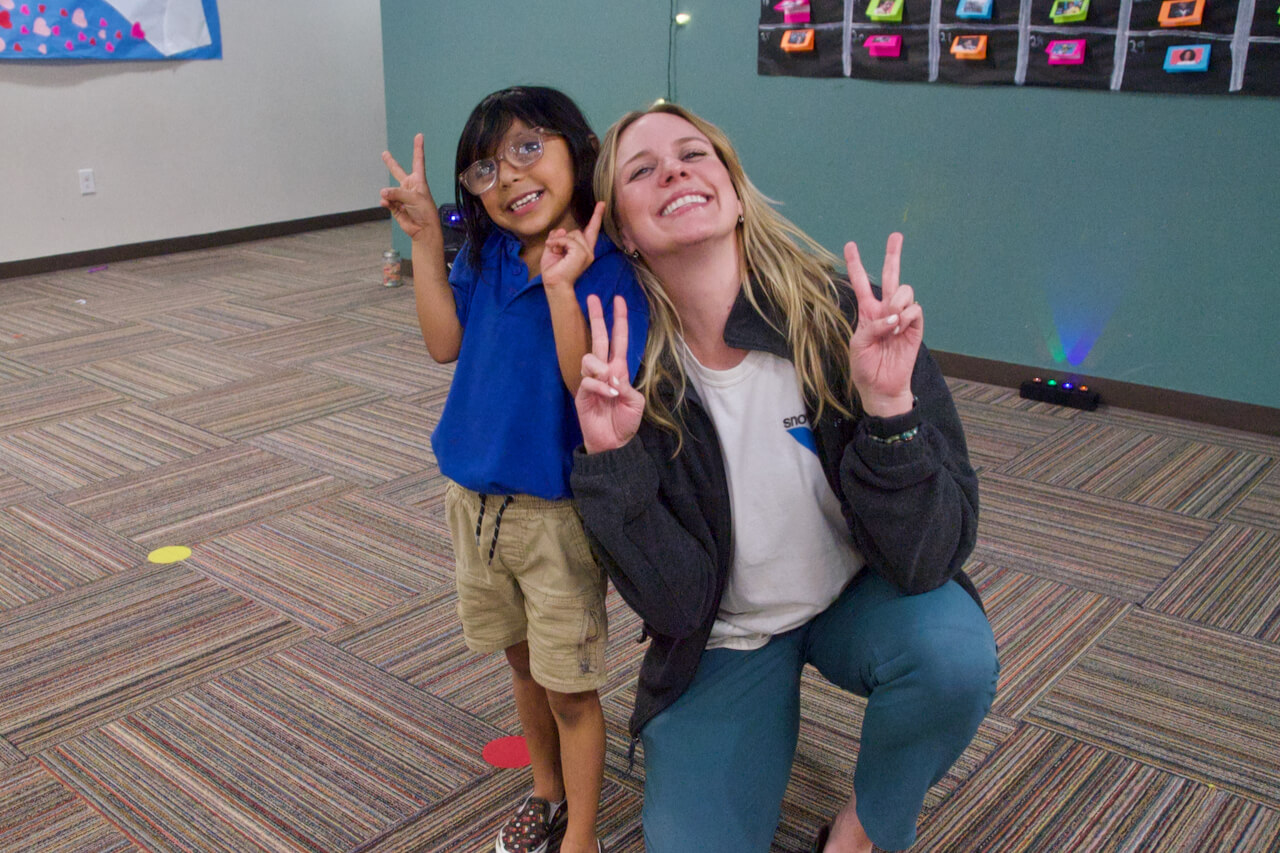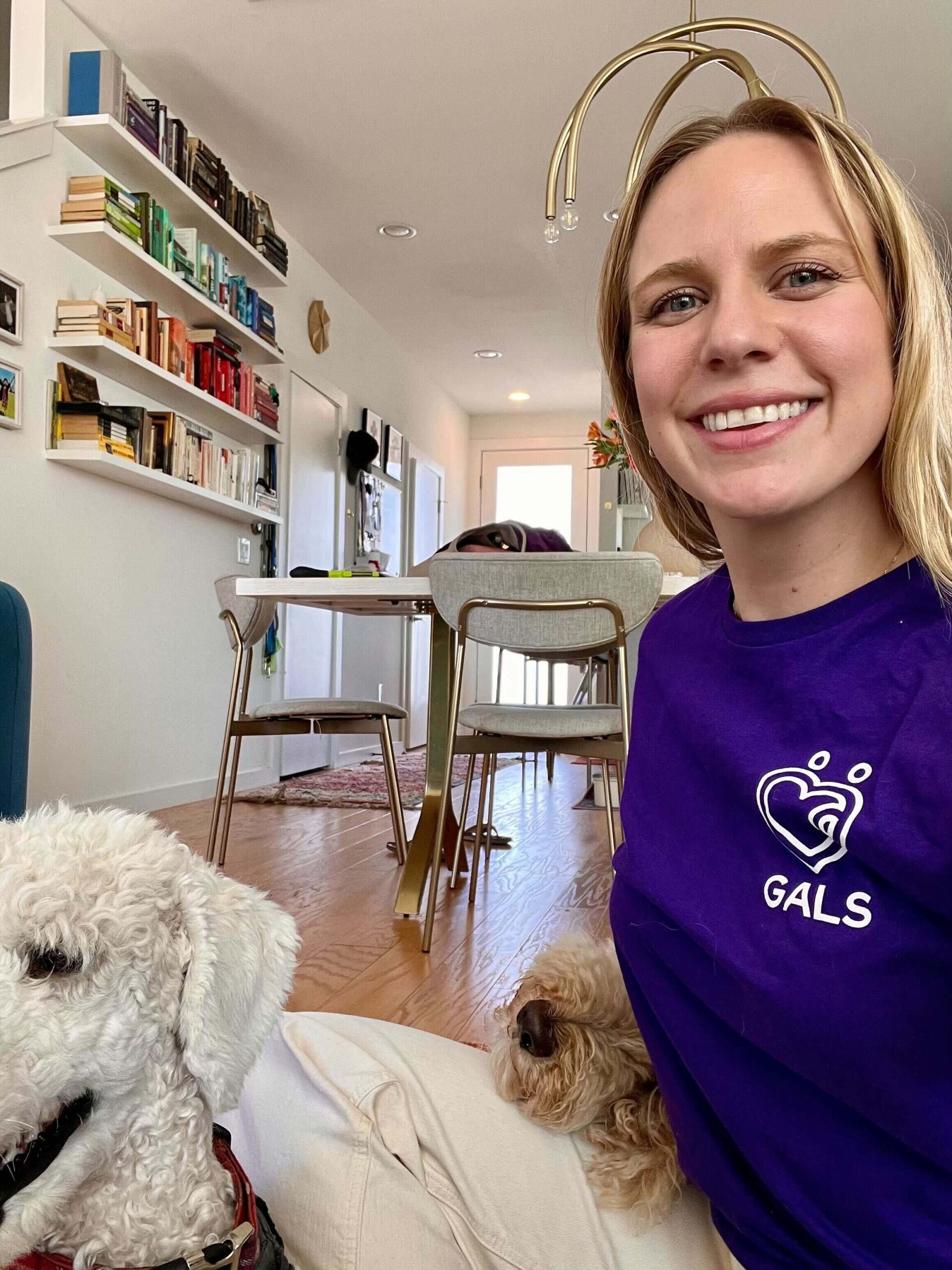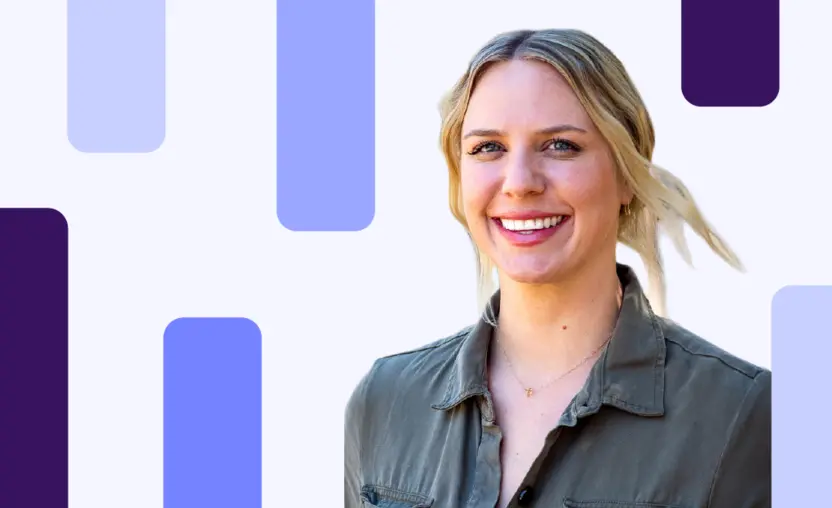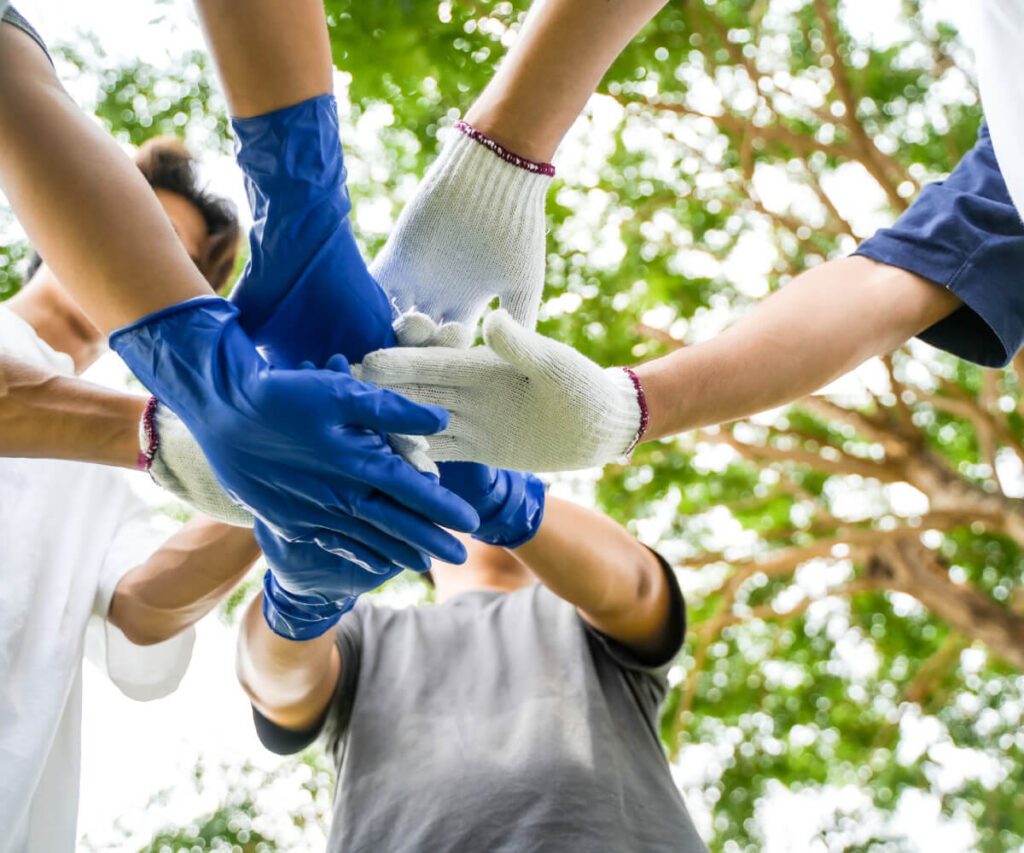What do you do when the system that’s meant to protect you fails? If you’re Tully Moorhead-Pisani, you find ways to help others avoid the same fate.
As the daughter of two architects, Tully has long understood how physical structures can enrich or diminish the life experiences of those living within them. Systemic structures, she believes, act similarly. After a difficult loss, Tully saw first-hand how government policies could harm those they’re meant to protect.
While it can take many years of legislative and socio-political progress to dismantle systemic barriers, Tully has recognized immediate steps that can be taken throughout that process to improve people’s lives. Armed with her experience as a director of product management at Bonterra, and a deep desire to help others, Tully has found ways to exert positive change in her work and community.

Tully Moorhead-Pisani volunteering at Foundation Communities.
Making a difference on a neighborhood level
Tully recently achieved a tremendous milestone: She bought her first home. But excitement about her new East Austin abode was overshadowed by her growing awareness of gentrification and how it’s negatively impacted residents who’ve lived in the neighborhood for generations. Tully wanted to give back to the community she’d come to call home.
Unsure where to start, she thought through the various nonprofits she crossed paths with in her role at Bonterra — one, in particular, stood out: Foundation Communities, an Austin-based organization that provides affordable housing, financial education, healthcare resources, and children’s programming. “They’re truly excellent at data management and impact analysis — best in class.” When Tully learned their M Station site was just down the road from her new home, she signed up to spend Monday afternoons working with elementary-aged kids.
“We offer enrichment, homework help, activities — all kinds of learning services and after-school programming,” she says. “I just hang out with the kids. It’s so fun.”
Finding empowerment
Tully always knew volunteering could offer a deep sense of meaning and purpose. But she didn’t expect it to also help her heal.
Tully’s prolonged journey to motherhood has been difficult. After experiencing a devastating second pregnancy loss, she was denied health interventions that have long been considered standard care. The experience compounded her loss and resulted in more invasive treatment. It also emboldened her to help others in similar situations.
Tully has since signed up to volunteer with Giving Austin Labor Support, or GALS, an organization that works to accompany women during labor so that no person has to give birth alone. She’s been working in an advisory role, assisting with fundraising and outreach messaging. “It’s been very healing,” Tully says. “I feel that when something really hard happens, the best way, and maybe the only way, to move on is to give value to other people.”
She’s also taken training to begin working with Apiary for Practical Support and Austin’s Bridge Collective, nonprofits that offer practical support and resources to women in need of reproductive healthcare. Like many who have found themselves disregarded by a broken system, Tully is working to empower herself and others to overcome challenging circumstances and bureaucratic red tape.

Tully Moorhead-Pisani at home with her dogs
Supporting our fundraising mission one story at a time
At Bonterra, Tully helps nonprofits share their impact through data, directly contributing to Bonterra’s mission to increase charitable giving to 3% of the U.S. GDP. “I can’t think of another problem that I would rather work on,” she says, “which is helping nonprofits tell their story in a way that’s going to multiply their ability to raise funds.”
Her community volunteer efforts mirror this professional ambition, allowing her to actively engage in a nonprofit’s story on the ground and in real time.
“Volunteering gives me perspective and joy,” says Tully. “I always have something to look forward to, which keeps me going during hard times.”




